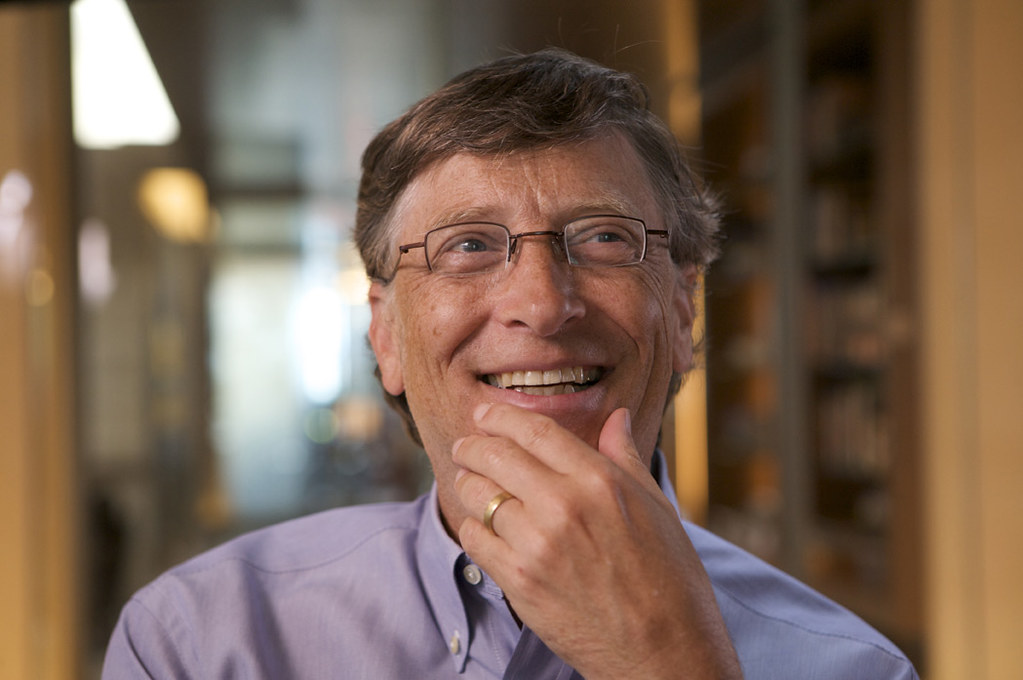When the people at TED asked Bill Gates to curate a list of his favorite talks, his first response was, “There are too many to pick, really.” Here, he’s whittled it down to 13 essentials.
#1. Hans Rosling – The best stats you’ve ever seen.
You’ve never seen data presented like this. With the drama and urgency of a sportscaster, statistics guru Hans Rosling debunks myths about the so-called “developing world.”
#2. The danger of science denial | Michael Specter.
Vaccine-autism claims, “Frankenfood” bans, the herbal cure craze: All point to the public’s growing fear (and, often, outright denial) of science and reason, says Michael Specter. He warns the trend spells disaster for human progress.
#3. The history of our world in 18 minutes | David Christian.
Backed by stunning illustrations, David Christian narrates a complete history of the universe, from the Big Bang to the Internet, in a riveting 18 minutes. This is “Big History”: an enlightening, wide-angle look at complexity, life and humanity, set against our slim share of the cosmic timeline.
#4. Let’s put birth control back on the agenda | Melinda Gates.
Contraception. The topic has become controversial in recent years. But should it be? Melinda Gates believes that many of the world’s social change issues depend on ensuring that women are able to control their rate of having kids. In this significant talk at TEDxChange, she makes the case for the world to re-examine an issue she intends to lend her voice to for the next decade.
#5. How we’ll stop polio for good – Bruce Aylward.
Polio is almost completely eradicated. But as Bruce Aylward says: Almost isn’t good enough with a disease this terrifying. Aylward lays out the plan to continue the scientific miracle that ended polio in most of the world — and to snuff it out everywhere, forever.
#6. How do we heal medicine? | Atul Gawande.
Our medical systems are broken. Doctors are capable of extraordinary (and expensive) treatments, but they are losing their core focus: actually treating people. Doctor and writer Atul Gawande suggests we take a step back and look at new ways to do medicine — with fewer cowboys and more pit crews.
#7. The surprising decline in violence | Steven Pinker.
Steven Pinker charts the decline of violence from Biblical times to the present, and argues that, though it may seem illogical and even obscene, given Iraq and Darfur, we are living in the most peaceful time in our species’ existence.
#8. Nathan Myhrvold: Could this laser zap malaria?
Nathan Myhrvold and team’s latest inventions — as brilliant as they are bold — remind us that the world needs wild creativity to tackle big problems like malaria. And just as that idea sinks in, he rolls out a live demo of a new, mosquito-zapping gizmo you have to see to believe.
#9. Let’s use video to reinvent education | Salman Khan.
Salman Khan talks about how and why he created the remarkable Khan Academy, a carefully structured series of educational videos offering complete curricula in math and, now, other subjects. He shows the power of interactive exercises, and calls for teachers to consider flipping the traditional classroom script — give students video lectures to watch at home, and do “homework” in the classroom with the teacher available to help.
#10. How PhotoSynth can connect the world’s images | Blaise Aguera y Arcas.
Blaise Aguera y Arcas leads a dazzling demo of Photosynth, software that could transform the way we look at digital images. Using still photos culled from the Web, Photosynth builds breathtaking dreamscapes and lets us navigate them.
#11. How I held my breath for 17 minutes | David Blaine.
In this highly personal talk from TEDMED, magician and stuntman David Blaine describes what it took to hold his breath underwater for 17 minutes — a world record (only two minutes shorter than this entire talk!) — and what his often death-defying work means to him. Warning: do NOT try this at home.
#12. The power of introverts | Susan Cain.
In a culture where being social and outgoing are prized above all else, it can be difficult, even shameful, to be an introvert. But, as Susan Cain argues in this passionate talk, introverts bring extraordinary talents and abilities to the world, and should be encouraged and celebrated.
#13. Robots that fly … and cooperate | Vijay Kumar.
In his lab at Penn, Vijay Kumar and his team build flying quadrotors, small, agile robots that swarm, sense each other, and form ad hoc teams — for construction, surveying disasters and far more. We hope this list of Bill Gate’s top 10 TED talks added value to you.





Leave a Reply